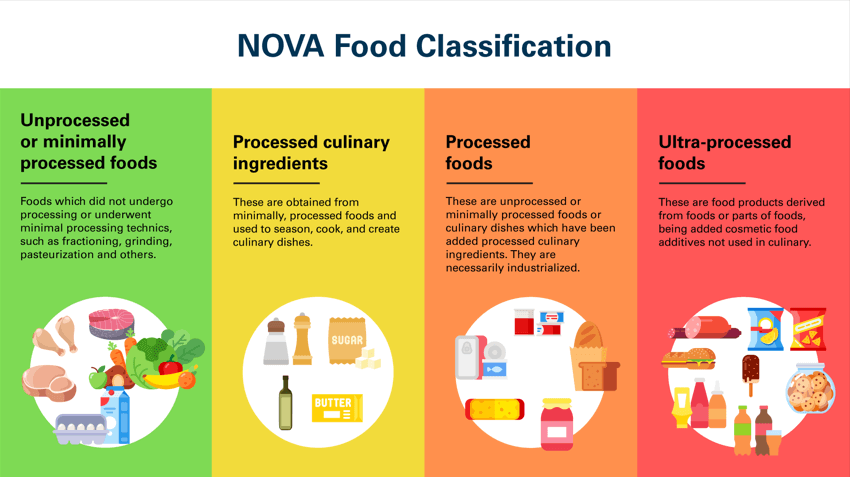Apply Now
Understanding 'Eat the Rich': Historical Context and Modern Implications
In the current socio-political landscape, the phrase 'Eat the Rich' has gained significant traction as a rallying cry against wealth inequality and economic disparity. It encapsulates the frustrations of many working-class individuals facing financial oppression in a system that seems rigged in favor of the wealthy elite. This article will dissect the origins of this phrase, its evolving interpretation through different social movements, and its implications for social justice today. The popularization of 'Eat the Rich' has included social protests, cultural critiques, and even grassroots movements advocating for economic reforms.
The idea of 'eating the rich' can be seen as a metaphorical expression of class struggle, highlighting the growing discontent with economic systems that perpetuate class divisions. The political implications of this phrase extend beyond mere rhetoric, reflecting societal frustrations about the distribution of wealth and privilege. As we explore its context in 2025, we’ll examine how this phrase represents more than a call for radical reforms; it symbolizes a desire for systemic change, emphasizing the pressing need for fair wealth distribution, economic justice, and a re-evaluation of power dynamics in society.
As we venture through this article, we will unpack the layers of meaning associated with 'Eat the Rich', analyzing its connections to social movements, historical contexts, and contemporary applications. We will also reflect on the critiques of capitalism that accompany this call for action, providing insights into the complex nature of activism and societal change. By the end of this journey, readers will not only grasp the essence of 'Eat the Rich' but also understand the broader implications of class consciousness in a world grappling with economic disparities.
Historical Precedence: The Roots of Class Struggle
The phrase 'Eat the Rich' has historical roots tracing back to revolutionary sentiments expressed during times of great economic stress. The French Revolution serves as a poignant example, where the disparity between the wealthy and the impoverished led to a societal upheaval that questioned the very foundations of privilege and power. This period was marked by a series of protests against the aristocracy, epitomizing the discontent of the masses and showcasing the dire need for change.
In the historical context, the symbolism of 'eating' the rich suggests a transformation of power dynamics – a transfer from the privilege of the elite to the demands of the working class. This radical expression highlights a pivotal point in social movements throughout history characterized by socioeconomic struggles, pushing for reforms that aimed to distribute wealth more equitably among the populace. As we dissect this sentiment, it opens up discussions about how the rich lifestyle and accumulation of wealth by a small elite can create significant societal fractures.
Moreover, the historical narrative surrounding class warfare points to a recurring theme of economic systems failing to address the needs of marginalized communities. The conversations around wealth disparities have evolved, reflecting a growing awareness of systemic injustices ingrained in capitalism. This lays the foundation for understanding how 'Eat the Rich' resonates with today's social movements advocating for economic rights.
Cultural Commentary: The Modern Interpretation of 'Eat the Rich'
In contemporary discourse, 'Eat the Rich' has transformed from a historical rallying cry to a cultural phenomenon embedded in protest songs, media narratives, and grassroots activism. Social media platforms have played a crucial role in amplifying this message, allowing young activists and marginalized voices to share their experiences and perspectives on wealth inequality and class struggles.
The cultural significance of 'Eat the Rich' lies in its ability to encapsulate widespread sentiments toward systemic injustice. Today, it represents not just a fight against capitalism but a broader critique of materialism and the stark contrast between the lifestyles of the wealthy elite and the struggles of the working class. This has given rise to movements for social justice that challenge the existing power structures and demand radical reforms to achieve social equity.
As we observe the evolution of this slogan, it is essential to acknowledge its emotional resonance. For many, 'Eat the Rich' serves as an empowering mantra, galvanizing protests against corporate greed and income inequality. It reflects a collective discontent that mirrors the struggles against wealth concentration and systemic oppression, thus inviting discussions on alternative economic systems that prioritize community empowerment and justice for the underprivileged.
Economic Disparity: Examining the Wealth Gap
Building on the understanding of historical context and cultural commentary surrounding 'Eat the Rich', we must now delve deeper into the economic realities that give rise to these sentiments. The wealth gap, characterized by stark contrasts in income and economic opportunities, poses significant challenges for society. This gap is not merely a statistical anomaly but a reflection of systemic inequities in access to resources, education, and opportunities for social mobility.
Data indicating growing wealth disparities reveal alarming trends, demonstrating how the richest individuals accumulate wealth at the expense of the working class. Such economic stratification highlights the urgent need for comprehensive policies aimed at wealth redistribution and progressive taxation. The rich versus poor narrative is critical in understanding the dynamics of class struggle, where economic activism becomes essential in advocating for the rights of the marginalized.
Socioeconomic inequality often perpetuates cycles of poverty, limiting access to education, healthcare, and economic participation. The consequences of these systemic injustices are profound, affecting not only individual lives but also the social fabric of communities. This reality highlights the importance of class consciousness and collective efforts directed towards meaningful change.
Despite various movements advocating for fair wealth distribution, the resistance from the wealthy elite and systemic structures poses significant challenges. As we continue to analyze these issues, it becomes evident that dismantling the status quo requires not just protests but a sustained commitment to advocacy for economic justice.
Activism: The Voices for Change
The role of activism in combating economic injustice cannot be overstated. 'Eat the Rich' has emerged as a cornerstone in the lexicon of social movements, encapsulating desires for societal change. Movements that champion this slogan often highlight the struggles of the less fortunate, advocating for radical reforms to address wealth concentration and power dynamics. Grassroots movements are at the forefront, engaging communities in discussions about income inequality and advocating for effective strategies to challenge the existing order.
Young activists are pivotal to this dialogue, employing creative protest tactics to draw attention to systemic injustices. The use of protest slogans like 'Eat the Rich' evokes strong emotional responses and inspires collective action among diverse groups advocating for class struggle and economic participation. These movements reflect a growing consciousness about the need for solidarity between classes, emphasizing that a united front is essential to dismantling systemic barriers to equality.
In light of an increasingly polarized society, activism fosters dialogue around issues of privilege and socioeconomic status. This discourse is vital for empowering marginalized communities and supporting them in their quest for justice. The challenges in economic reform demand persistent efforts from activists who confront corporate exploitation and systemic injustices, making civic engagement essential in fighting for financial equality.
Furthermore, an intersectional approach within activism recognizes the unique challenges faced by different groups, enhancing the pursuit of equitable outcomes. By nurturing cross-class coalitions, the fight for social justice becomes more effective and inclusive. Thus, the activism surrounding 'Eat the Rich' signals a transformative approach to addressing socioeconomic disparities within the broader struggle for human rights.
The Role of Protest Culture in Challenging Inequality
Protest culture embodies the spirit of resistance against societal injustices. The emergence of 'Eat the Rich' is part of a larger narrative of social movements that leverage collective action to challenge economic systems perceived as oppressive. Protest culture not only serves as a platform for expressing dissent but also fosters community solidarity and support among those affected by economic disparities.
Modern protests against inequality often serve as a creative outlet, showcasing the diverse expressions of discontent with the wealthy elite and capitalist structures. From art installations and performances to music and literature, the cultural representations of 'Eat the Rich' reflect society's frustration while galvanizing support for radical changes. The emotional resonance of these expressions amplifies the message that failing to address wealth gaps and economic rights resonates deeply within communities, fueling further activism.
Efforts in protest culture are often linked to broader movements that address societal issues such as climate change, racial justice, and labor rights. These interconnected struggles highlight the systemic nature of oppression and the necessity for comprehensive solutions that address root causes. The challenge lies in maintaining momentum in activism, as protests may start fervently but can also wane without sustained engagement from activists.
While protest tactics vary, the effectiveness of movements is often measured by their ability to disrupt the status quo and drive public discourse on critical economic issues. Social media has facilitated the rapid spread of messages related to 'Eat the Rich', providing avenues for organizing protests and engaging a wider audience. As societal attitudes toward wealth and privilege evolve, the role of protest culture remains instrumental in pushing for meaningful reforms.
Exploring the Future of Wealth Redistribution
Having analyzed the multifaceted nature of 'Eat the Rich' through historical, cultural, and activist lenses, we now turn to envisioning potential futures for wealth redistribution. As conversations around economic justice gain traction, progressive taxation emerges as a key strategy for addressing income disparities and promoting equity.
The case for progressive taxation rests on the premise that those who possess more wealth should contribute more to fund public services and social programs aimed at uplifting marginalized communities. By redistributing wealth, society can tackle pressing challenges such as healthcare access, education, and housing insecurity, fostering an environment conducive to socio-economic advancements for all individuals.
Communities are increasingly recognizing the need for grassroots activism to influence policy changes around wealth ownership and redistribution. This entails reshaping public opinion on economic issues and advocating for systemic reforms that challenge existing inequalities. The push for social equity calls for new frameworks that incorporate social justice principles into economic policies, thereby prioritizing the needs of the underprivileged.
Moreover, discussions about charity versus justice become essential in weighing how wealth responsibility is handled in society. While philanthropy has its merits, addressing systemic inequities requires comprehensive reform measures that prioritize equitable wealth distribution over temporary relief efforts. By engaging in such critical dialogues, activists can promote awareness around financial oppression and call for changes that uphold economic rights for all.
As movements evolve and gain momentum, the ongoing advocacy for economic standards reflecting egalitarian principles seeks to challenge the normalization of wealth hoarding. The future of wealth redistribution hinges on sustained activism, engaging communities, and proposing transformative policies that align with the principles of economic justice. As we envision these changes, it is essential to remember that the pursuit of fair wealth distribution is a collective responsibility.
Conclusion: The Call for Systemic Change
In conclusion, the phrase 'Eat the Rich' serves as a powerful metaphor for the ongoing struggles against wealth inequality and systemic injustice. Through historical contexts, cultural interpretations, and the dynamics of class struggle, we see that this call encapsulates a broader desire for social change and economic justice. The exploration of activism surrounding this slogan highlights the urgency to address financial disparities and the need for profound societal reform.
As public discourse continues to evolve, the principles of solidarity, grassroots activism, and community empowerment remain vital in challenging the entrenched power of the wealthy elite. The path forward requires collective efforts focused on advocating for policies that promote fair wealth distribution while addressing historical injustices that marginalize communities. By engaging in these discussions and standing against economic exploitation, we can reshape the narrative surrounding wealth and initiate transformative dialogues that drive us toward a more equitable society.
As we reflect on the implications of 'Eat the Rich', let us embrace the call for systemic change and commit ourselves to fostering a society where economic rights, social justice, and equitable wealth distribution prevail.

 Its part of generated content. Can i generate another part?
Its part of generated content. Can i generate another part?

 Its part of generated content. Can i generate another part?
Its part of generated content. Can i generate another part? 